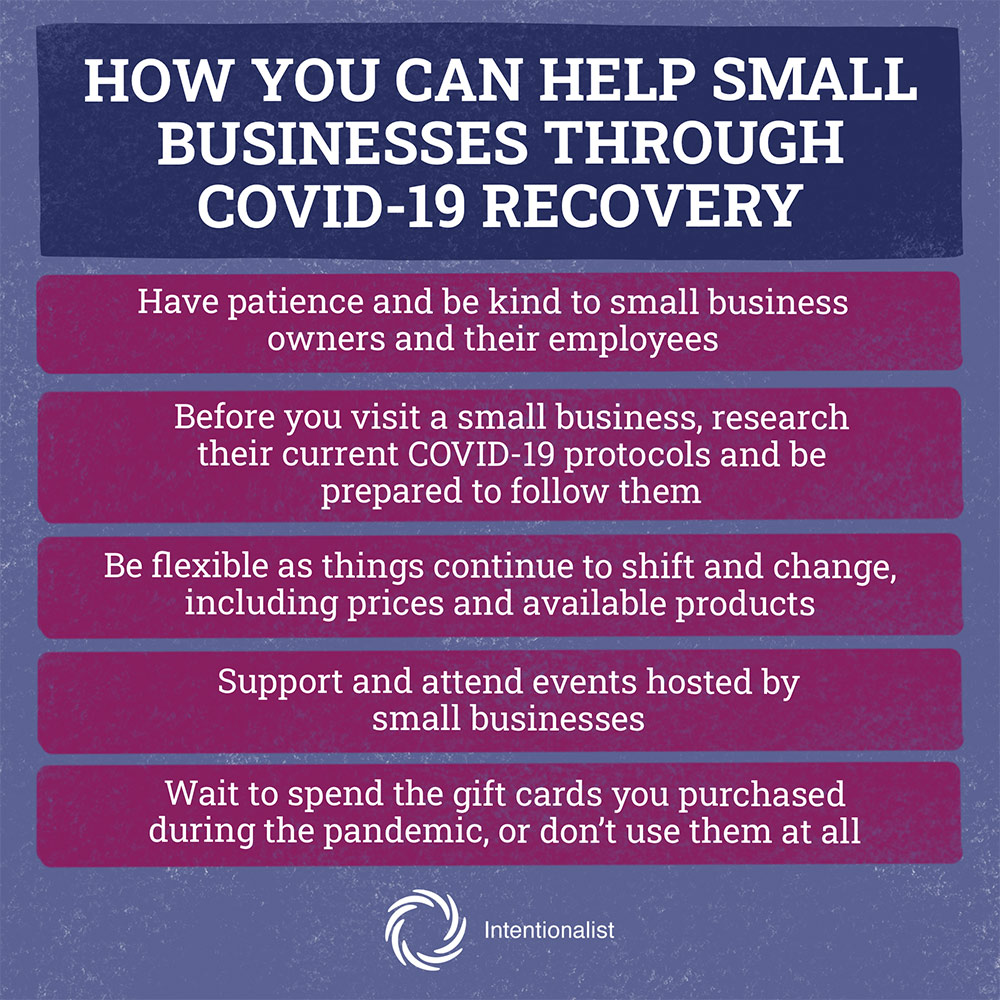How are small businesses recovering as the pandemic continues to create a more uncertain future?
COVID-19 has dramatically changed the small business landscape. The number of small businesses in Washington decreased by a staggering 45% from January 2020 to June 2021.
For local businesses that have managed to remain open, it’s been a continued uphill battle. They’ve had to reinvent the way they operate, figure out how best to keep their employees and customers safe amid ever-evolving restrictions, and rethink their plans for the future.
Recovery, as we’ve learned, isn’t a linear process. Mask mandates have come back as the delta variant spreads, adding another bump on the rocky road to recovery.
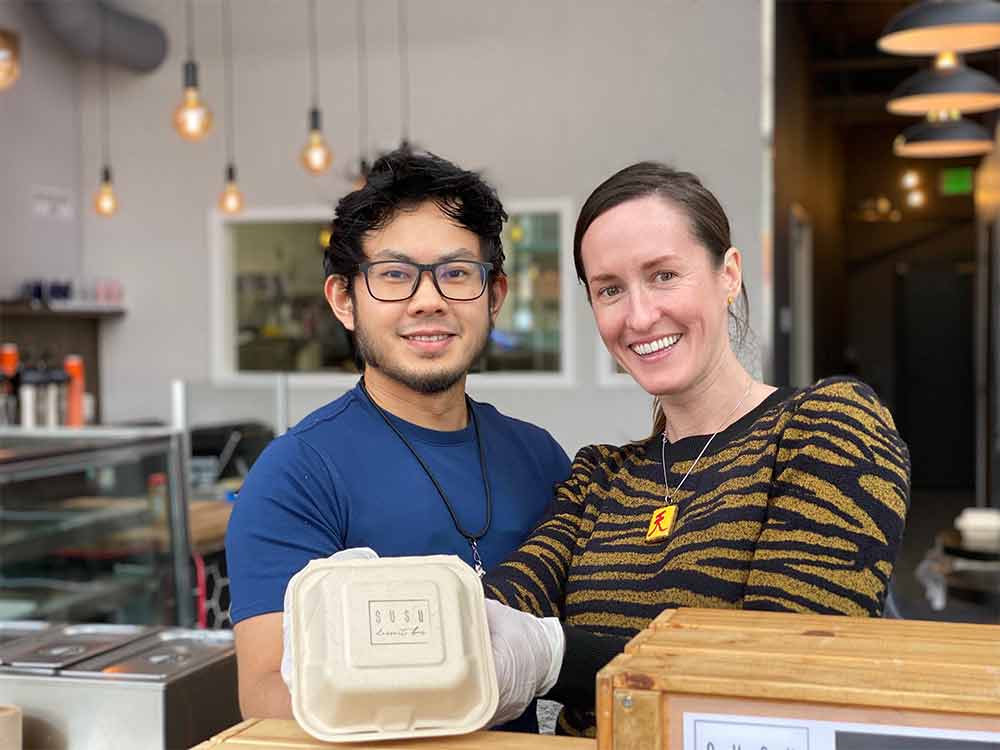
Susu Dessert Bar was one of the many local businesses that had to pivot and rethink their future. The pandemic forced them to cancel their grand opening in March 2020, so they partially opened as a bakery in April 2020.
“I feel like people might assume that ‘recovery’ is going to happen quickly. This is not the case,” Katie Fairoz said, the co-owner of Susu Dessert Bar in the Chinatown-International District. “As we drive through downtown and see all the ‘For Lease’ posters in empty storefronts, it’s a sign for us that ‘recovery’ from this pandemic is going to be slow and painful, but it will happen eventually. We’re grateful to have fought this first battle as small business owners and come out the other side. Many were not so lucky.”
Scanning each corner of Seattle, there are many once-bustling storefronts that are now empty. These empty spaces are a reminder of the tumultuousness of the pandemic and an uncertain future. Downtown Seattle Assocation’s economic report found that more than 160 store fronts have permanently closed.
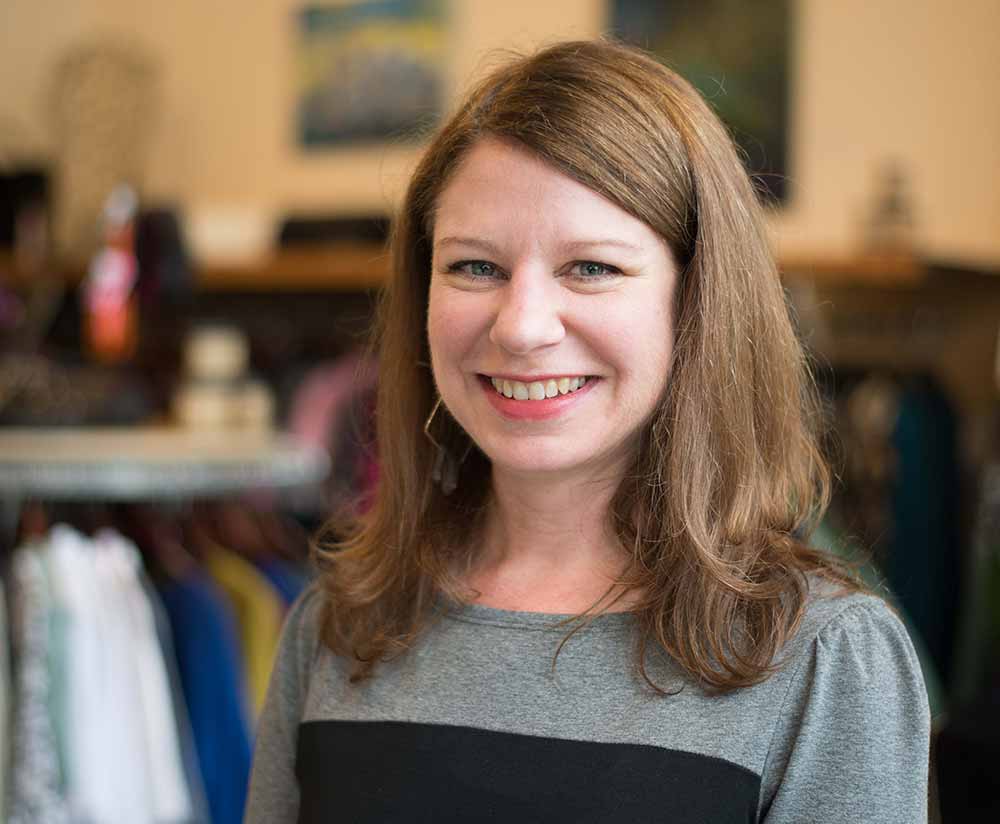
“I’m part of a Facebook group that’s all Seattle boutiques, and about 50% of them closed forever last year,” said Amy Tipton, the owner of Belltown boutique Sassafras. “It’s really sad, and I hope that more and more new business owners will come in and take up all the empty spaces. I don’t want everything to turn into Cheesecake Factory.”
At the beginning of the pandemic, Sassafras started making thousands of masks, putting designers to work in their downstairs fashion studio. They opened up again for indoor shopping in July 2021 after being closed for roughly a year and a half.
“I feel like the whole retail scene in Seattle is totally different from before the pandemic,” Amy said. “So many small businesses are closed forever and even some big ones are closed forever. . . . all these things aren’t downtown anymore. I don’t know what it will look like, I have seen several new and exciting businesses open up. I look at them and I think that’s brave. It’s exciting because life goes on, basically.”
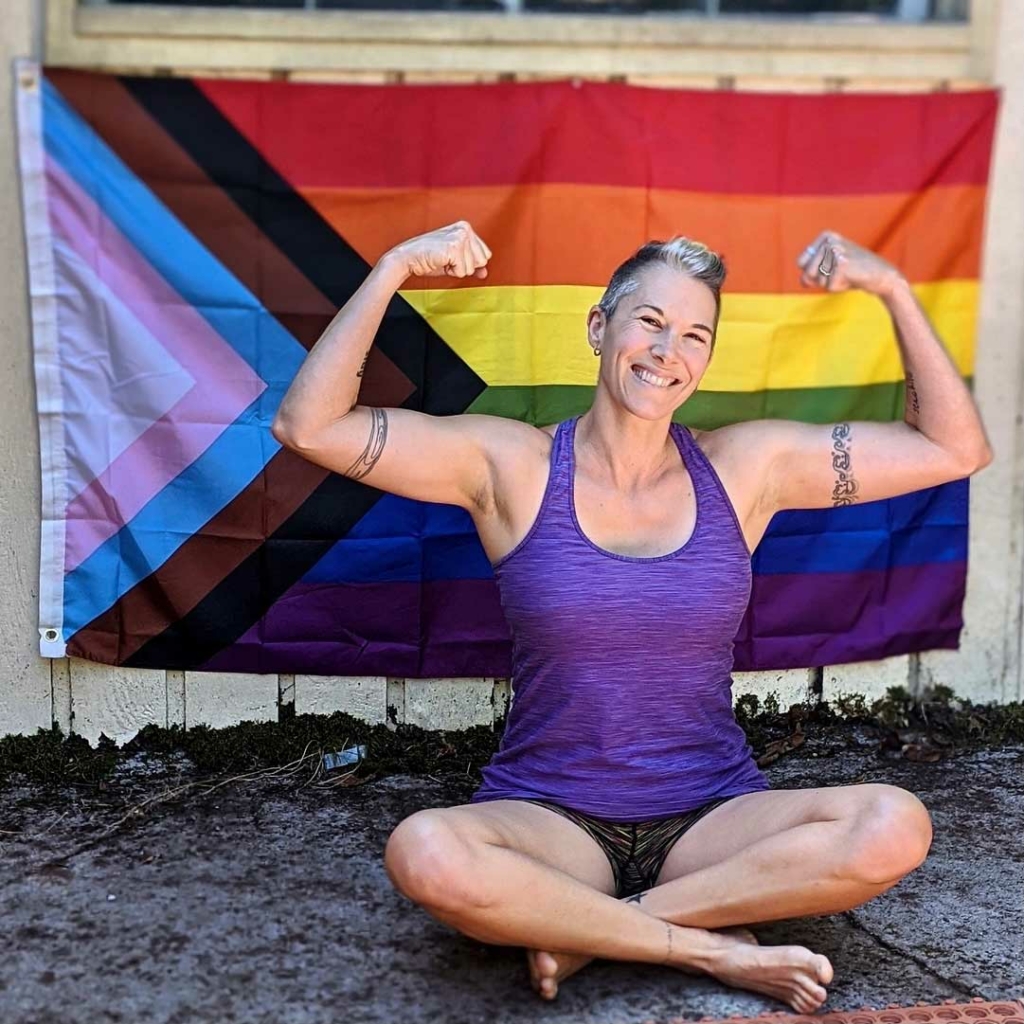
However, as the delta variant progresses, no one can be sure what’s to come, including Ballard-based gym Strive and Uplift owner Ren Caldwell.
“We’re opening two physical locations in the fall and creating COVID policies and procedures that we can update as needed,” Ren said. “The virus is going to be with us for a long time, and gyms are one of the easiest places for it to spread to the immunocompromised and children who cannot yet be vaccinated. We’ll continue to have discussions as a coaching team and a community, adjusting our guidelines and following federal and state guidelines to the letter!”
Ren anticipated the road to recovery would be rocky, so she didn’t make long-term plans for her business. Ott Jaicharoensook, co-owner of Thai restaurant Bangrak Market, shared a similar view of the future.
“COVID-19 has forced many businesses like mine to reevaluate many things, from business changes, like moving to digital formats to reach and sell to new customers,” Ott said. “The new normal from this is going to be adopting an added layer of health safety and hygiene, hand sanitizer wipes and dispensers, masks worn for kitchen staff, etc.”
Relying on Community
Throughout the COVID-19 pandemic, many business owners have echoed the same sentiment: the community support has been incredible.
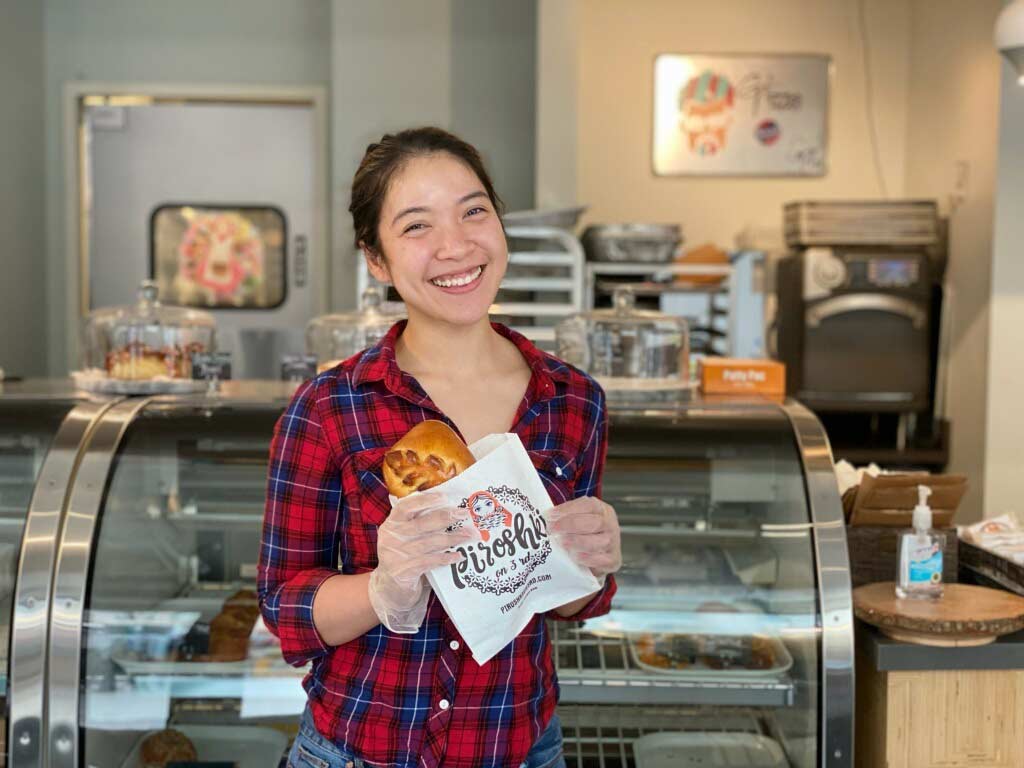
Alyssa Anderson, who took over as the owner of Piroshki on 3rd in 2018, said her business heavily relies on downtown office workers and lost a lot of business when the city shut down.
According to the Downtown Seattle Association, foot traffic in downtown Seattle from March 2020 to January 2021 was 30-50% of 2019 numbers. The percentage of office workers Downtown is still 24% of pre-pandemic levels, as of August 15, 2021.
Despite the continued lack of possible customers, Alyssa partially reopened Piroshki on 3rd in November 2020 to ensure her employees had a job to come back to.
“I know some people aren’t exactly working in the neighborhood just yet, [but] we’ve seen a lot of our regulars try and carve some time and get some of our piroshkies,” Alyssa said. “And that’s been amazing.”
In addition to customer support, Ott from Bangrak Market is grateful for the help he’s received from fellow business owners. He’s been able to lean on his neighbors and swap insights and tips to see how they’ve addressed similar challenges.
“The support from our local community has been amazing,” Ott said. “Additionally, we appreciate all the kind words in customer reviews through apps and online and social media, which has been a huge source of support in driving word of mouth for us.”

Meanwhile, Strive and Uplift’s Ren hopes we can maintain this level of community support as we look toward the future.
“I hope the new normal involves being in community with other small businesses,” Ren said. “It was very inspiring to see small businesses working together to stay afloat during the pandemic, instead of seeing each other as competition.”
What Business Owners Need Now
Katie from Susu Dessert Bar said her team needs continued patience and compassion. Keep in mind, these businesses aren’t franchises backed by big sponsors — they are small shops run on the passion and care of their owners.
“Most small biz folks in the hospitality industry are doing the best that they can,” Katie said. “And we hope that customers will understand that it’s going to take perhaps another full year until we really get back into the swing of things.”
Amy, owner of Sassafras, suggested visiting events hosted by businesses — or just visiting the business — as a free way to help out. In 2013, Amy re-established the Belltown Art Walk and said if people don’t come out and support, she doesn’t know how long the art walk will last.
She also suggested buying a gift card and waiting a while to use it or throwing it away altogether, which is something she’s done for several businesses.
“If you’re going to use your gift card, maybe wait until next year,” Amy said. “If you bought a gift card last year, please don’t come now and use it. It’s really not a sale for us, and it’s taking away from inventory we can’t replace right now.”
Last year when the COVID-19 pandemic first started to shut down small businesses, there was a huge push to buy gift cards to give businesses immediate funds. However, it’s still not the right time to use those gift cards since the business won’t benefit further from the purchase.
Piroshki on 3rd’s Alyssa has also faced employee and inventory shortages, like many businesses across the board.
“With COVID-19, I know everybody’s tired of it. I understand the fatigue that comes with all the regulations and all the rules,” Alyssa said. “I think the best thing people can do to support the businesses is, of course, coming down here, and also be nice. Just be patient.”
We can’t predict or control how long recovery will take or what it will look like. But what we can control is the part we play in continuing to support the small businesses in our communities.
“We’ve been through a collective trauma, and we’re going to have to recover collectively,” Ren said. “And the trauma hasn’t ended in many parts of the country, and definitely in the rest of the world. We are all exhausted, and are going to need support, care, and grace”
She compared getting ready to open new physical locations during this time as standing near the edge of the ocean, ready to dive in.
“I love the water and I’m incredibly excited, but I’ve also just run a marathon and it’s a little bit scary looking at that huge expanse of blue,” Ren said. “But then I remember I’m not alone, and start taking those first few steps into the surf.”
